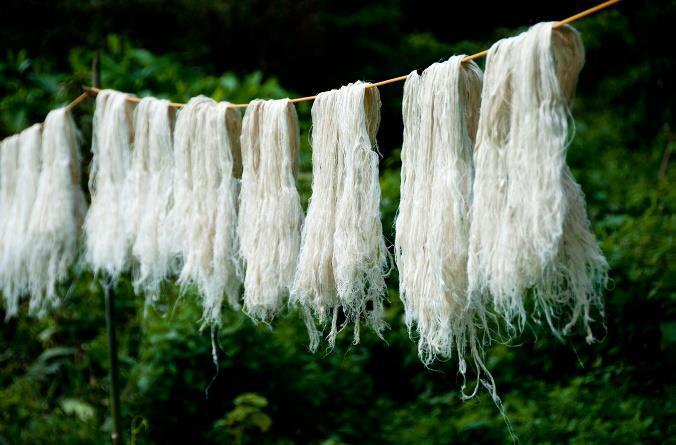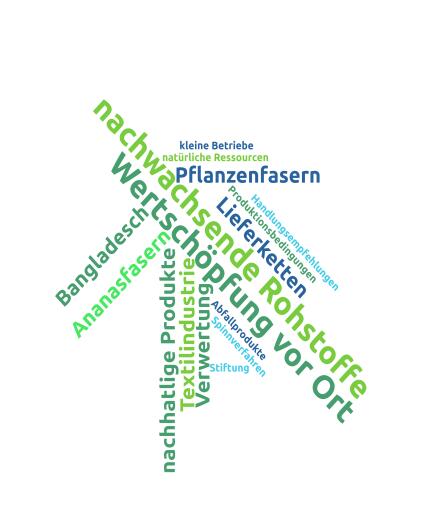Pineapple fibers as raw material for textile fibers – Holistic approach to the extraction of industrially usable pineapple fibers in the north of Bangladesh under consideration of decentralized structures
International project funding
Subject and goals of the project
The textile industry requires large quantities of raw materials, including both plastics based on fossil raw materials and natural fibers such as cotton, which also require a high level of resources. The supply chains in the textile industry are international. Most of the clothing available in German stores today is not produced in this country, but comes from countries such as China, Bangladesh, India or Turkey. This means that consumers in Germany have a responsibility for the production conditions in the manufacturing countries.
Innovative fibers are needed to reduce the use of non-renewable raw materials in the textile sector. Plant fibers can be a resource-saving and sustainable alternative here. From an ecological as well as an economic point of view, the use of raw materials that are a waste product of the food industry is very advantageous. Pineapple production generates large quantities of fibrous residues from the leaves of the plant. So far, however, these have only been used on a small scale as nonwoven and composite materials to replace leather (piñatex).
The aim of the project was to investigate whether different production chains can be established for a sustainable and spinnable pineapple leaf fiber.
It was shown that a spinnable pineapple leaf fiber from the waste of pineapple cultivation for the food industry is feasible. The pineapple leaf fiber can complement existing market-relevant fibers. The project demonstrated that different fiber intimate blends allow the broader use of pineapple leaf fiber for the textile and clothing industries. Products made from pineapple leaf fibers are then suitable for wider market use in various yarn counts, for example for bags, coarse home textiles (flat woven fabrics) or for jackets, pants and jerseys.
Optimizations of fiber preparation or the heeling process can be implemented locally in Bangladesh and are also economically viable. In the Rangpur region, there is high interest and a necessary quality awareness to produce a spinnable primary product. This makes it possible to create value for small businesses in rural areas of Bangladesh.
Innovation and exemplary nature of the project
Yarns made from pineapple fibers do not yet exist on the market. Technically, it is a challenge to make the fiber spinnable in an industrial process. For this reason, the project is investigating and comparing various methods for obtaining an industrially usable spinnable fiber from the waste from pineapple production, taking into account high environmental and social compatibility requirements.
Special aspects of the project
In addition to the ecological relevance, the socio-economic relevance is another core aspect of the project. By successfully establishing appropriate supply chains, added value is brought to rural areas in Bangladesh. The pineapple farmers generate additional revenue from the utilization of the leftovers. Women will be the main participants in the manual first processing, which is an additional important aspect for the empowerment of women in Bangladesh.
As the project focuses on textile processing in Bangladesh, it can make an important contribution to sustainable development here. Bangladesh has a bad reputation in textile production due to various devastating events as well as from a quality point of view. At the same time, however, the country is economically heavily dependent on the textile industry. The project can be a positive beacon project for sustainable textile production in this country.
Funding subject: Development, design and acceptance of environmentally-friendly consumer goods
Cooperation partners:
Associated partners:
Locations: Germany, Bangladesh
Funding period: December 2019 to September 2021
Project costs: Total volume: 245 780 Euro, DBU funding: 124 991 Euro
DBU-AZ: 34997
Note: Translation of the German version with DeepL
Last updated: 08.04.2022



